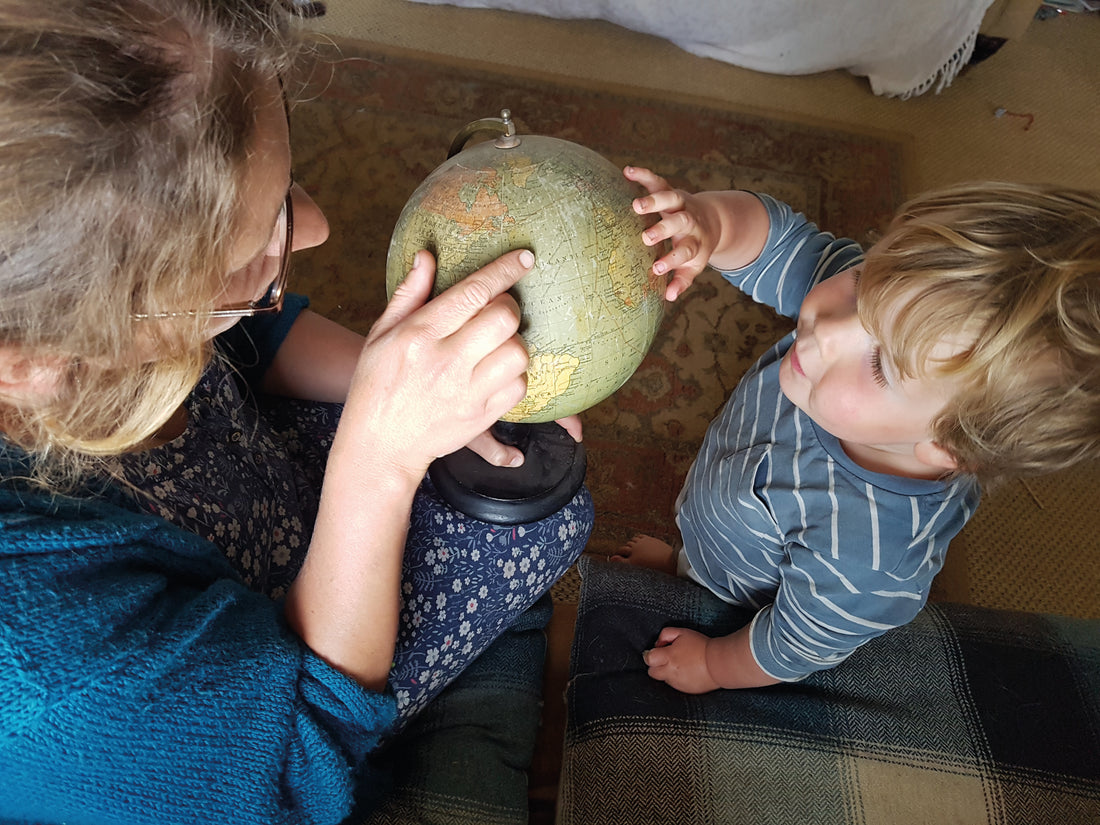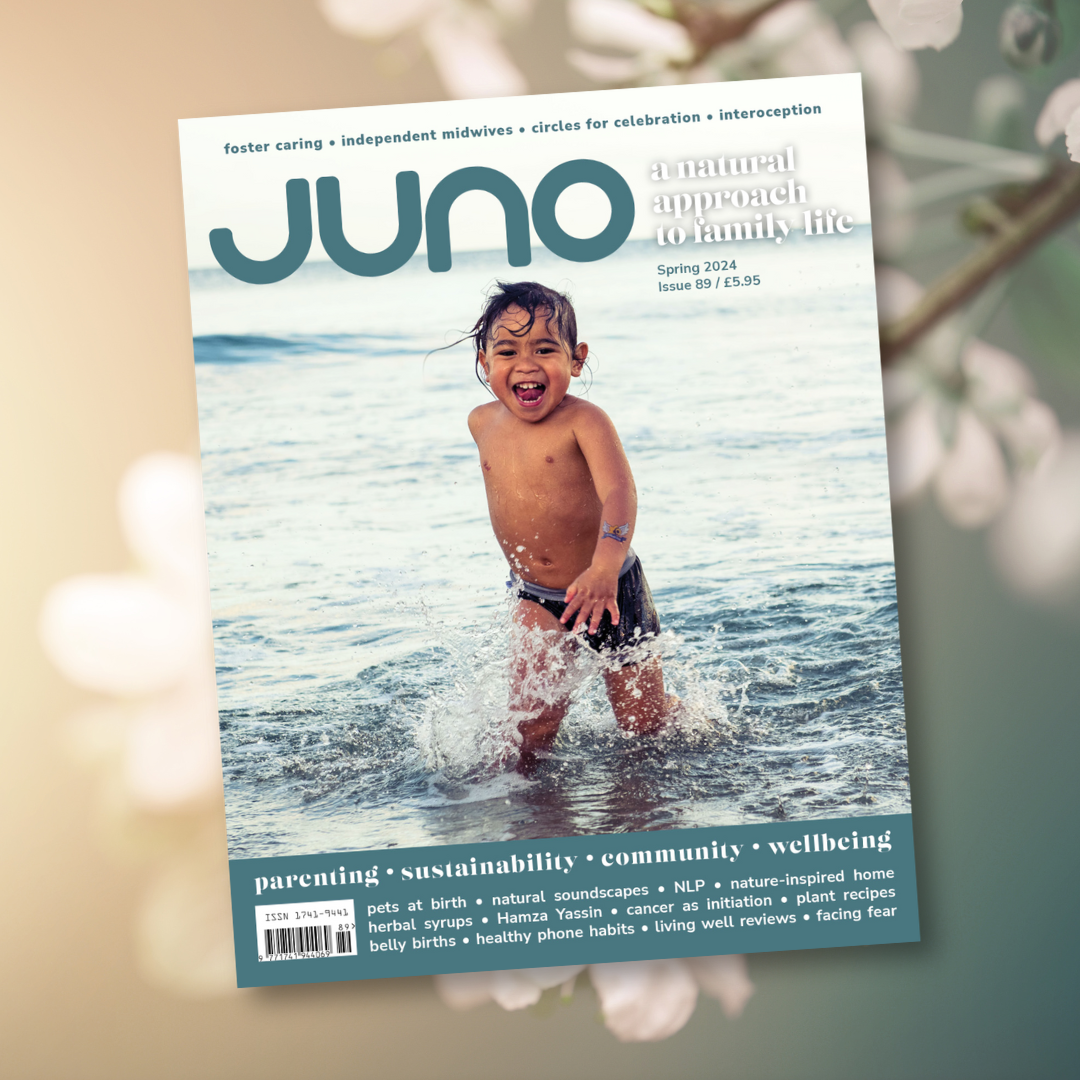Anna Dusseau explains why her family chose to home-school
Our family began home-educating back in 2019 and, I can assure you, this was definitely not the original plan. Home schooling happened to us, the same way it happened to most of the families I have met since, quite by surprise. Not the surprise sprung on families by school closures during the coronavirus pandemic, but rather a welcome insight into the way children really learn, and an astonishing unleashing of their true potential. As a former teacher, I was familiar with the eye-watering stats, with 64% of home-educated Reception-aged children scoring over 75% on their PIPS Baseline Assessment, compared to 5.1% of children nationally.1 But did I, in all honesty, believe what I was reading? Not really. Home-educating my own children changed that, though.
Home schooling has risen in popularity by a growth of 40% from 2015-2017 and now stands at an estimated 60,000 children in the UK.2 Also known as HE (Home Education) or EO (Education Otherwise), this approach is perfectly legal and clearly set out by the Education Act of 1996, which states that all children must “receive efficient full-time education… either by regular attendance at school or otherwise.” With this in mind, however, home schooling was not an immediate choice for us, and our eldest actually spent a relatively happy year in the Reception class at our village school, before issues with pupil behaviour, academic progress and poor management became evident. However, what has happened in the world between then and now renders such decision-making more complex. The ups and downs of teacher-led ‘crisis-schooling’ have driven many families to consider home learning as a permanent option, but the landscape is politically charged now, and we all feel it. Nobody wants to neglect their ‘moral duty’, do they?
Another problem is that, whilst parents of schoolchildren are increasingly pushing back against the monotony of school-directed study, pandemic home schooling has given many an impression of home schooling that is inextricably linked with captivity and social isolation. It’s a shame because, in reality, one of the most enjoyable aspects of home education is that no two days are the same. The Education Otherwise website is a good place to start, but in fact this only just scratches the surface, as almost every sports centre, museum, music group and town hall would normally have a timetable of activities with sessions taking place just for home-schoolers. A Monday morning might begin with reading or maths, followed by listening to a geography podcast while washing up the breakfast bowls. Then it’s off to music group and choir, followed by afternoon swimming lessons and piano before dinnertime. But that won’t be what Tuesday looks like at all. Tuesday could be booked for an all-day medieval battle re-enactment. Equally, if your family favours a quieter pace of life and more time for reading, local walks and exploring personal interests, then that is what your home education will look like. The freedom of flexibility is key.
Now, I know what you’re thinking: ‘How does anyone have time for all that?’ And I think this is one of the most difficult aspects of the decision when considering the option of home schooling; it changes your life completely. In order to home-school you have to, quite literally, change your mindset about education and move from a school approach, where learning is delivered by the teacher, to a model where the whole family are on a learning journey together. It’s as exciting and daunting as it sounds, and the important point here is that you may have to reorganise your lifestyle around this new and powerful philosophy. For many families, it means operating on a single income while one parent manages the home schooling. For others, it means a more fundamental change, with both parents quitting corporate jobs in order to work part-time from home and share the home-schooling process. It is a life-changing and incredibly rewarding process, but you have to really want it.
Home-schoolers are in good company, though. Since we started, I would estimate that in around half of all the families we have met, one or both parents are former schoolteachers. This can’t be ignored. In biology, the term ‘indicator species’ describes a species that may be “unusually sensitive to environmental changes, and biologists monitor the indicator species for signs that something is amiss in the environment.”3 The point is, in the world of education, the sheer number of home-schooling teachers acts convincingly as an indicator species, and the government would do well to consider why so many teachers – myself included – decide that this is not what we want for our children.
But it’s not entirely straightforward. Home schooling is a hugely liberating adventure, for sure, but I sometimes worry that I might be sidestepping a bigger responsibility here. I do not want, in home-educating my own children, to evade the importance of adding my own voice to the cacophony of voices calling for change in schools. The school system is our collective responsibility and we must bring ourselves to speak up, whether we are standing outside the gates at 9am or not.
If you are considering home schooling as an option for your family, you might want to take the following steps in making your decision:
- First, identify what the problem is for your child. Are they suffering from bullying, overwhelmed with homework, reluctant to learn, or moody and depressed around the house? It’s important to be clear with yourselves – and your child – what the ‘trigger’ is.
- Talk openly with your child about the options, including the pros and cons of both decisions. You need to work together with your child through this process and to communicate your thoughts and concerns with each other.
- If you do decide to home-educate, you will need to write a formal letter or email requesting your child’s withdrawal from the school. It is officially the school’s responsibility to let the LEA know that your child has been deregistered, however, there is no harm in contacting your LEA independently, especially as it might point you in the direction of some useful home-learning groups and resources.
- Allow yourselves a period of ‘deschooling’ in which you place no academic expectation on yourself or your child. This is a time to unwind from the manic pace of mainstream schooling, reach out to other home-educating families, and discover the style of learning that suits your child. (See our feature in Issue 67 – Summer 2020 – ‘A world of home educators overnight’).
Plenty of superb minds are formed in the school system; home schooling is not the only way to cultivate creativity and freedom of thought. However, many parents are now being forced to consider whether school is actually the right place for their child, faced with the overwhelming evidence of their flourishing at home during school closures. A more relaxed pace of life, less intense social pressure, increased family time, and a genuine sense of autonomy are all valid motivations for this autumn being a ‘not back-to-school’ season for a significant number of families. The choice is yours and, in the end, my only unwavering advice is to place your child’s wellbeing at the heart of your decision-making.
____
Anna Dusseau is a former secondary teacher and home-schooling mum of three. Her first book, The Case for Home Schooling, is published by Hawthorn Press.
____
References
- Paula Rothermel, ‘Home education: aims, practices and outcomes’, presented at the Annual Conference of the British Educational Research Association (September 2002).
- Mariam Issimdar, ‘Home schooling in the UK increases 40% over three years’, (April 2018), available at bbc.co.uk (tinyurl.com/bbc-homeschool)
- Sallie Borrink, ‘Teachers who become home-schoolers are the indicator species’, (April 2015), available at tinyurl.com/borrink-indicator-species
____
Resources to support education at home
GROWbox creates resource boxes for children with activities that focus on people and planet. The aim is to give children the tools they need to be mindful, kind and resilient members of society, equipped to better understand the beautiful world we need to protect and ready to tackle the climate change crisis. The aim is to create quality family time and enable children to learn through play whilst gaining an appreciation of the natural world and becoming resilient and knowledgeable people as they grow. Each GROWbox provides a combination of parent-guided engagement and independent learning and is loads of fun.
GROWbox has an ethos of sustainability and makes every effort to ensure that their products are as environmentally friendly as possible. Available at farleigh.org.uk, an eco-hub connecting communities with the land, and each other.

Housebound with Kids
Housebound with Kids is a website that provides craft, activity and recipe ideas to support parents and carers at home with children. All ideas are sent in by parents and educators who have already enjoyed the activities with their families. There is a huge range of contributions from families around the world, and contributors are encouraged to add information about themselves as well as supportive comments and tips. There is a fantastic sense of community collaboration to the project which was started by Vicky and her husband as a Facebook group during lockdown. Anyone who wants to take part in the project can submit their ideas via the website. houseboundwithkids.com
LIL Online
The Lycée International de Londres Winston Churchill, an independent, bilingual, co-ed school located in North London, has announced a new programme to offer a complete remote learning curriculum to students who are unable to physically attend school or whose families are seeking a more structured and communal home-schooling experience.
Starting in September for children aged 11 (Year 7, 6ème) and above, LIL Online will match the course of study followed on campus, with structured, interactive classes on a regular schedule, delivered online and via video. The programme includes other aspects of the school’s culture, including extensive wellbeing support, career and university counselling, social interaction and a deep sense of community and shared experience.
____
Nikole Verde, our home ed columnist, shares resources her family enjoys
Here is a compilation of free educational websites and YouTube channels that my children have enjoyed over the years. Most of our art and craft ideas come from random inspiration or Pinterest. CrashCourse is fantastic for history. Otherwise, we usually look up specific historical information – for example, this YouTube channel is great for 18th century cooking: youtube.com/user/jastownsendandson
General (younger children)
kids.nationalgeographic.com
pbskids.org/games
youtube.com/user/crashcoursekids
online.kidsdiscover.com (has some free content and additional paid content)
General (older children)
thecrashcourse.com or youtube.com/user/crashcourse
openculture.com/freeonlinecourses
youtube.com/user/todayifoundout
Maths
khanacademy.org
prodigygame.com/main-en
coolmathgames.com
youtube.com/user/vihart
Science and engineering
stevespanglerscience.com/lab/categories/experiments/at-home-science
youtube.com/user/asapscience
youtube.com/c/scishow
youtube.com/c/inanutshell
veritasium.com
itsokaytobesmart.com
youtube.com/c/natureleague
youtube.com/user/minutephysics
youtube.com/c/markrober
youtube.com/c/thekingofrandom
Languages
duolingo.com
Sign language
lifeprint.com
Psychology
youtube.com/braincraft
youtube.com/c/scishowpsych
Coding
codecademy.com
____
First published in Issue 69 of JUNO. Accurate at the time this issue went to print.





